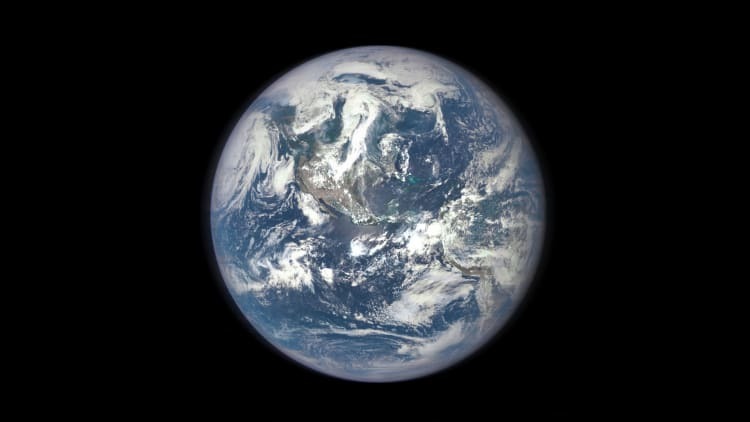- | 8:00 am
Climate change is slowing Earth’s rotation. Here’s what that means for the length of our days
Until now, scientists did not believe that humans could control the rate of the Earth’s spin—but that’s exactly what a new study in ‘Nature’ suggests.

The Earth is spinning slower due to melting polar ice, caused by climate change.
Climate change is impacting everything from food production to natural disasters, and apparently, it’s also impacting the rate at which our planet spins.
According to a new study, published Wednesday in Nature, the Earth’s rotation is slowing due to melting polar ice, which—you guessed it—is a result of climate change. The slowed spin means that our days are actually getting slightly longer.
Professor Duncan Agnew, from the Scripps Institution of Oceanography, is the author of the paper describing this phenomenon. “Imagine a skater spinning on the ice,” Duncan told the Natural History Museum. “If they hold their arms out, their spinning is slower, but if they bring them into their body, then they speed up. This demonstrates the conservation of angular momentum, a principle which applies to all spinning objects, including the Earth.”
He continued, “As polar ice melts, the water spreads out over the whole ocean, causing the same effect as the skater spreading their arms out—the Earth slows down. More rapid melting would slow the Earth more rapidly, opposing the speedup that has been seen in recent years.”
As the paper notes, in recent decades, our planet’s rotation has actually been speeding up, which could affect how time is kept. That’s problematic for systems that rely heavily on time, like computer systems. Scientists have debated whether to take a “negative leap second” from clocks starting in 2026. However, now that the melting polar ice is counteracting that trend, the plan will be delayed for three more years.
That plan had been controversial among some. “Introducing new leap seconds is a risky practice that does more harm than good, and we believe it is time to introduce new technologies to replace it,” Meta engineers wrote in a blog post in July. “Because it’s such a rare event, it devastates the community every time it happens.”
Agnew said the planet has been spinning faster for around 50 years now. When the polar ice caps started rapidly melting, it became less obvious. While we know that climate change impacts so many things, scientists did not believe, until now, that humans could control the rate of the Earth’s spin. That was considered the work of the tides and other naturally occurring forces.
While scientists may have mixed feelings about leap seconds, they seem to agree that climate change affecting the pace of the Earth’s rotation is uncharted territory.
“This is an unprecedented situation and a big deal,” said Agnew. “It’s not a huge change in the Earth’s rotation that’s going to lead to some catastrophe or anything, but it is something notable. It’s yet another indication that we’re in a very unusual time.”







































